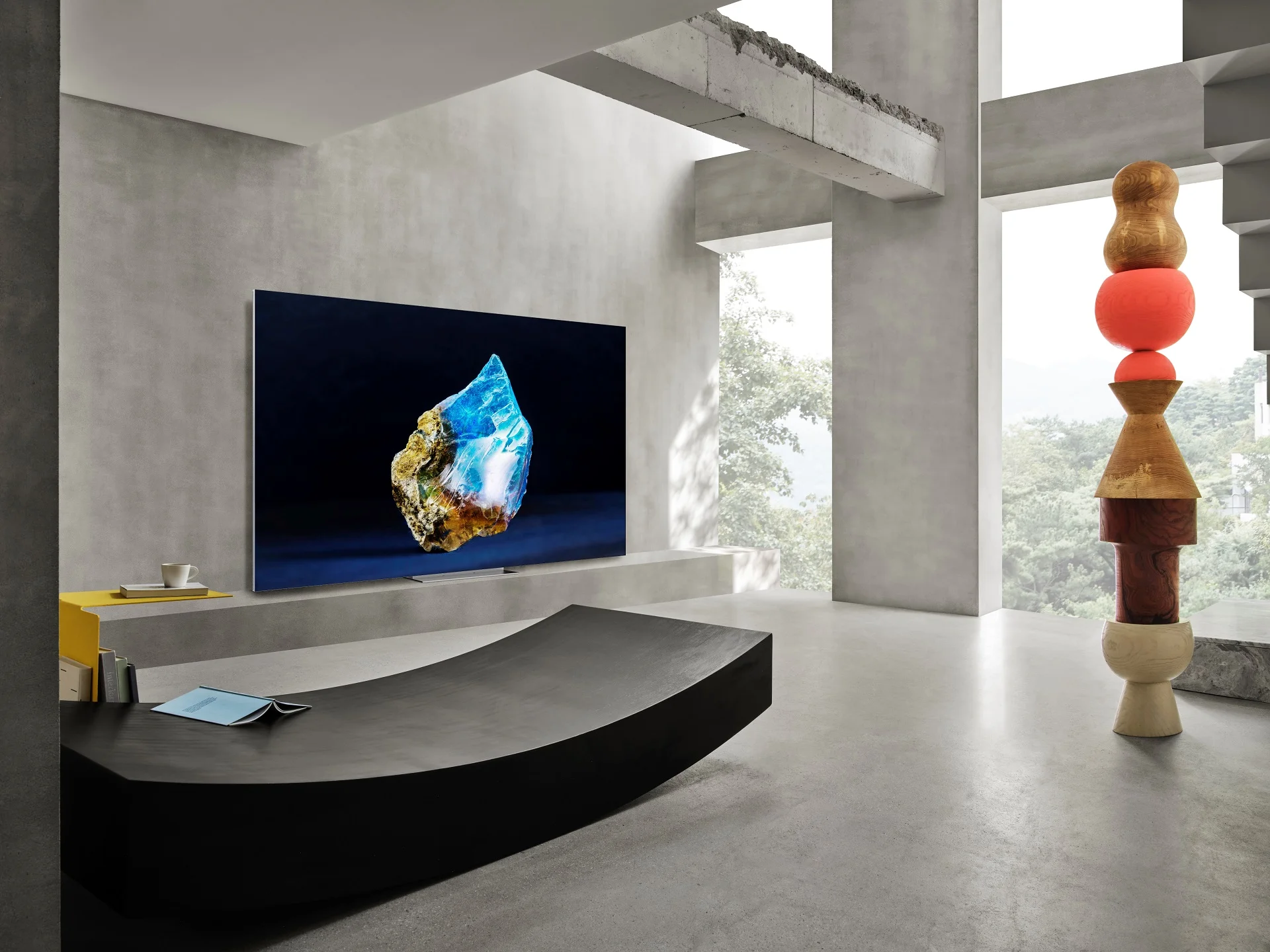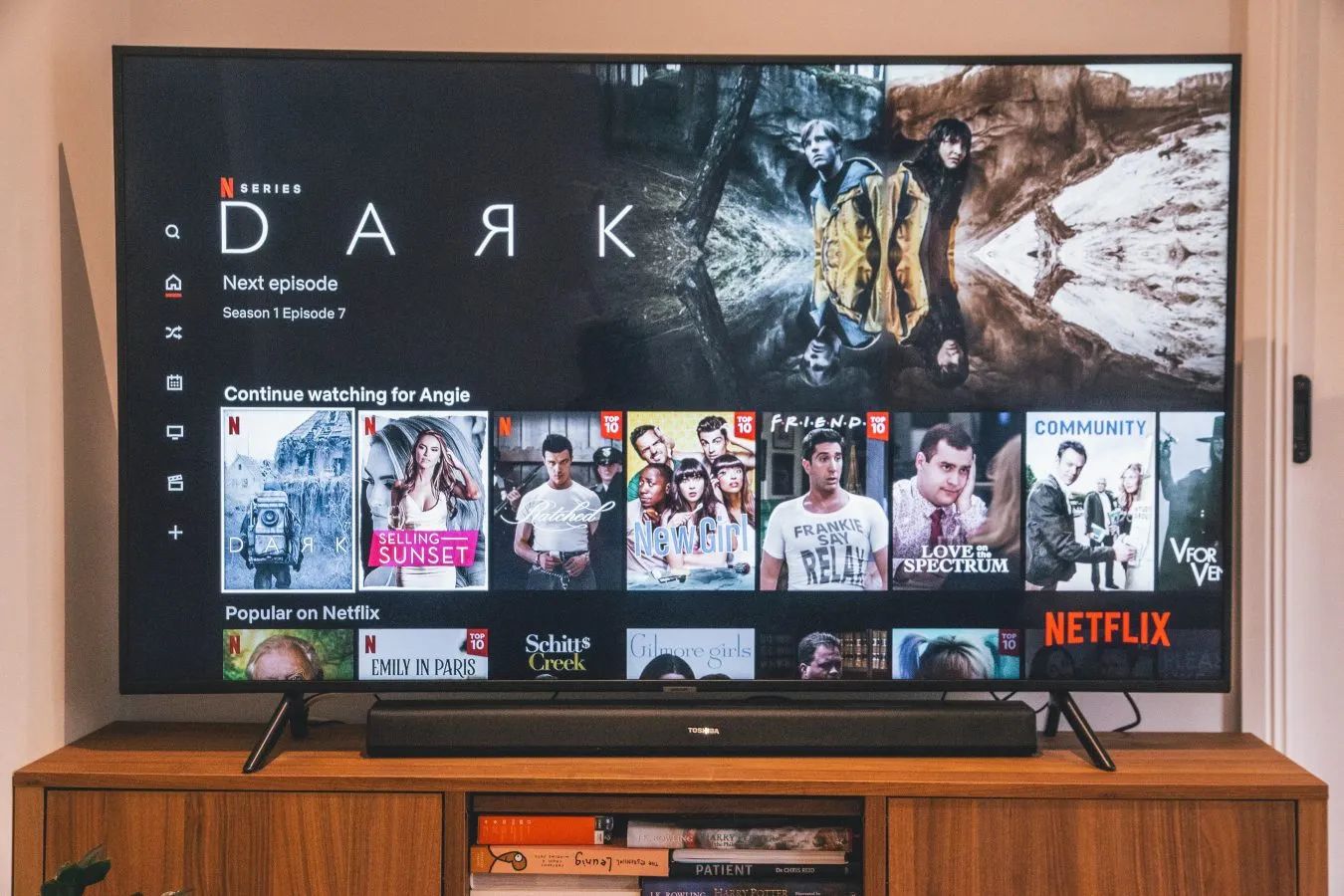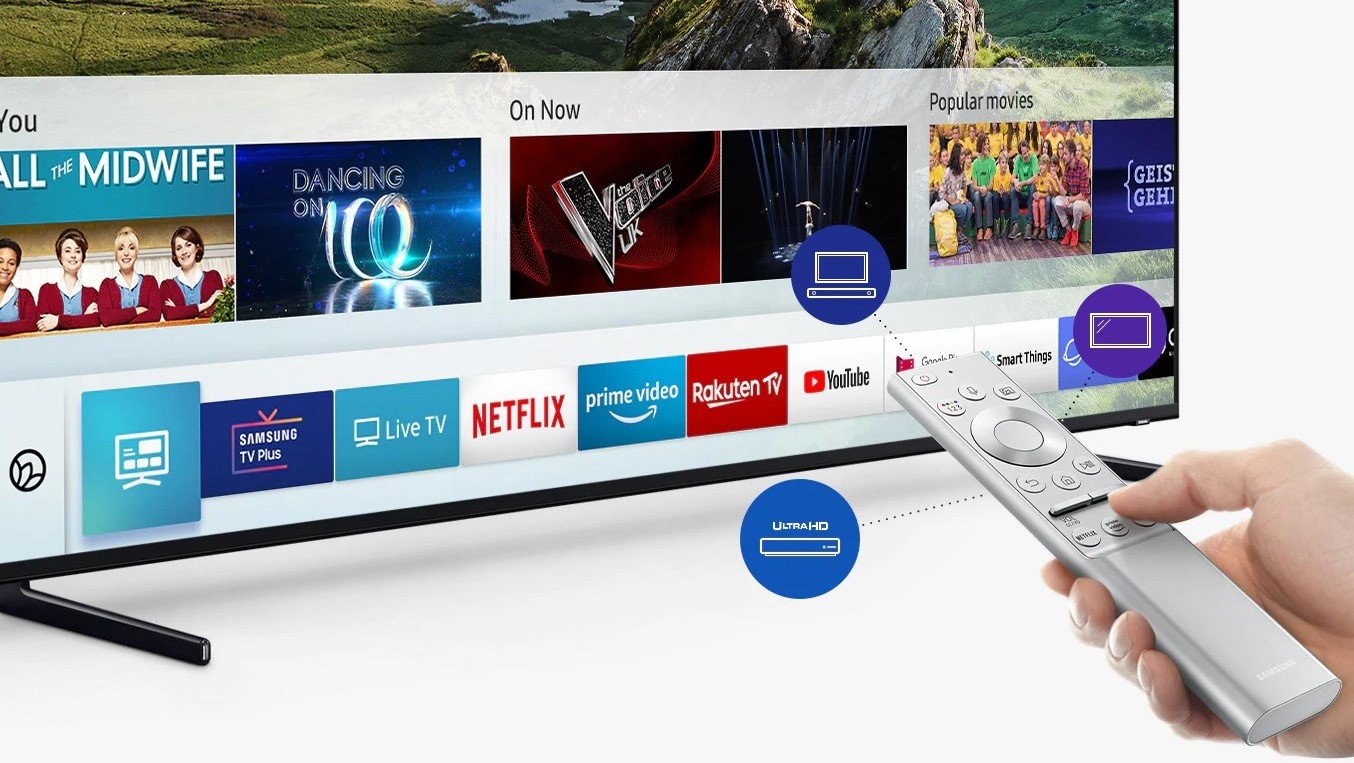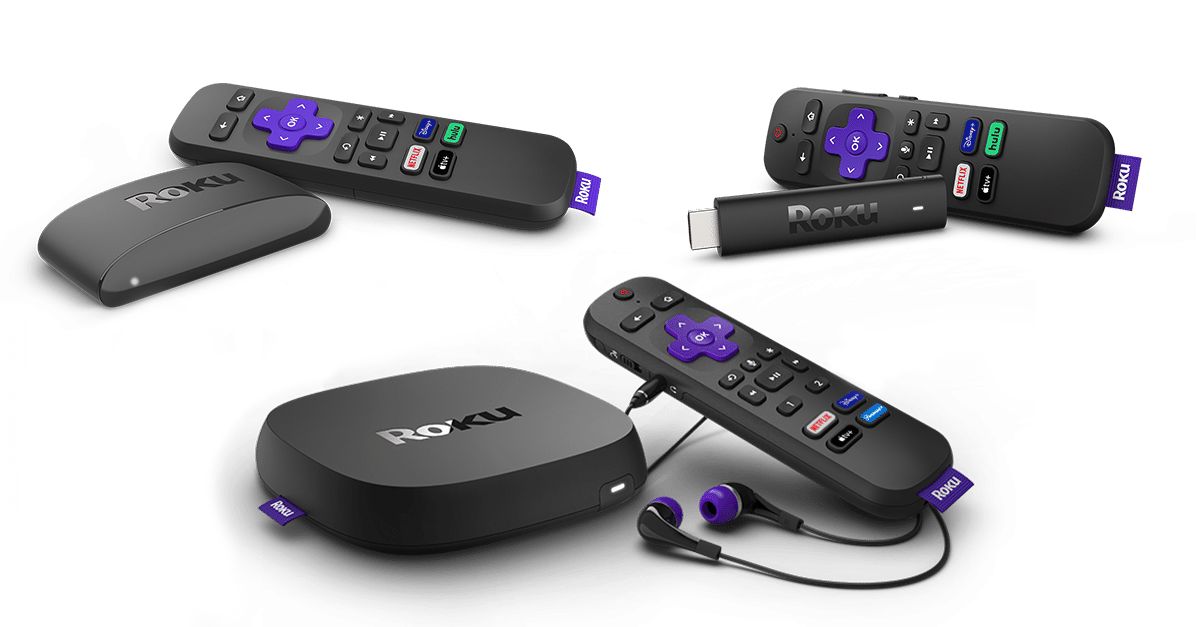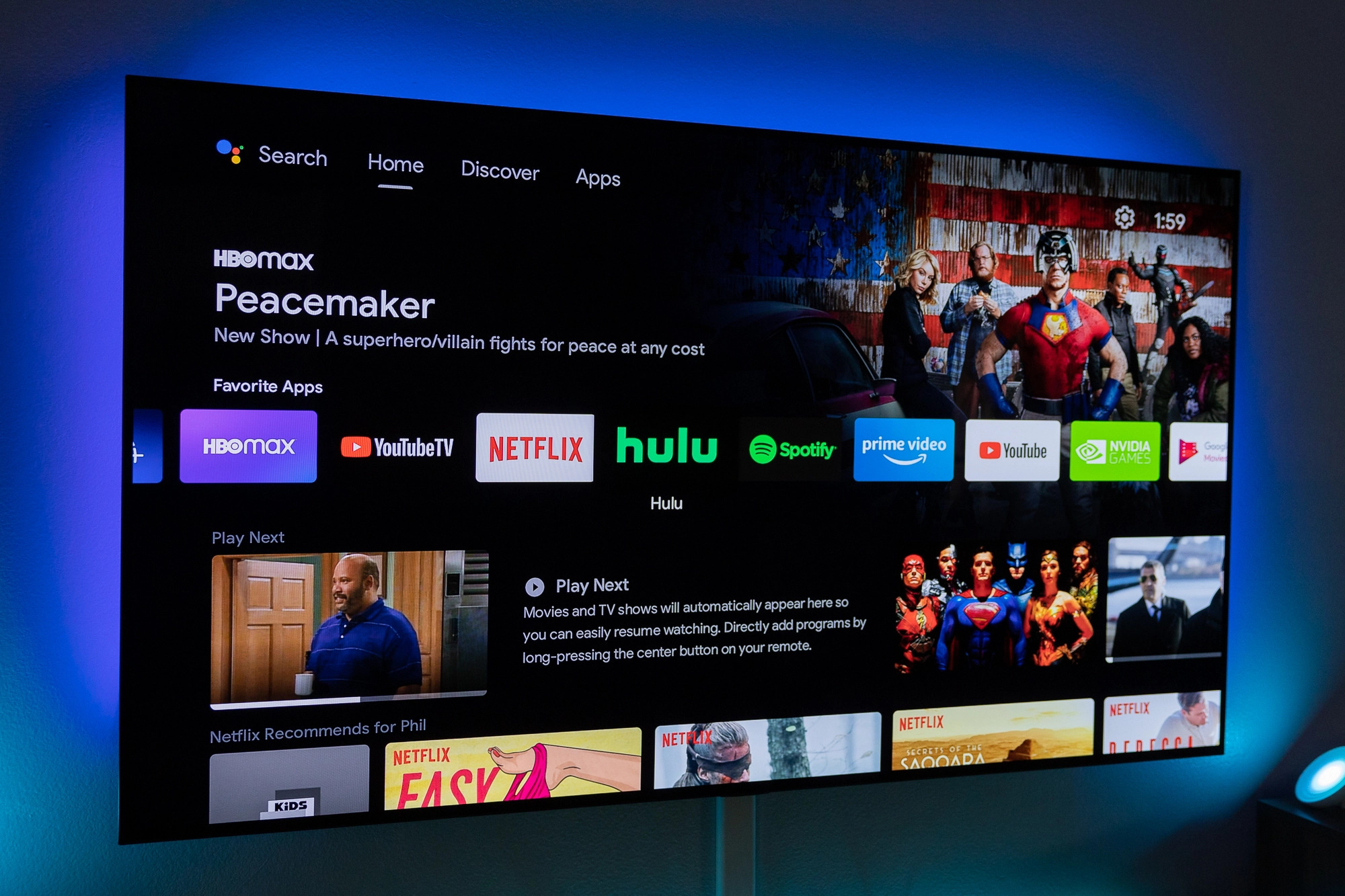What Is Smart TV?
Smart TV is a revolutionary technology that has transformed the way we consume and interact with television content. It refers to a television set that is equipped with built-in internet connectivity and provides a range of online features and services. With a Smart TV, users can access a variety of streaming services, browse the internet, play games, and even interact with social media platforms, all from the comfort of their living rooms.
Smart TVs are essentially a combination of a traditional television set and a computer. They are designed to provide a seamless integration of entertainment and internet-based content, making it easier and more convenient for users to access a wide array of digital media.
One of the key features of a Smart TV is its ability to connect to the internet. This allows users to stream their favorite movies, TV shows, and videos from popular platforms like Netflix, Hulu, and YouTube. With built-in Wi-Fi or Ethernet connectivity, users can easily connect their Smart TVs to their home networks, eliminating the need for additional devices like streaming boxes or game consoles.
In addition to streaming services, Smart TVs also offer a range of other online functionalities. Users can browse the web using a built-in browser, check their emails, and even shop online. The availability of various apps and widgets also allows users to customize their TV experience and access a wide range of content and services, such as news, weather updates, and social media platforms.
Smart TVs often come with a user-friendly interface that is specifically designed for easy navigation and intuitive use. They typically provide options for connecting external devices like gaming consoles, Blu-ray players, and sound systems, offering a comprehensive multimedia experience. Some advanced Smart TVs even support voice control and gesture recognition, enabling users to operate their TVs with simple voice commands or hand gestures.
In summary, Smart TVs are a modern-day evolution of traditional television sets. They combine the functionalities of a TV and a computer, allowing users to access a wide range of digital content and services. With their internet connectivity and intuitive interfaces, Smart TVs have become an integral part of modern home entertainment systems, providing users with endless options for entertainment, communication, and information.
What Is Android TV?
Android TV is a smart television platform that is powered by the Android operating system. It is a version of the popular Android OS specifically designed for televisions and set-top boxes, providing users with a unique and immersive viewing experience.
With Android TV, users can enjoy a wide range of digital content and services directly on their television screens. The platform offers access to various streaming services, such as Netflix, Amazon Prime Video, and Hulu, allowing users to stream their favorite movies and TV shows with ease.
One of the standout features of Android TV is its extensive app ecosystem. Users can access a vast library of apps through the Google Play Store, similar to what is available on Android smartphones and tablets. This opens up a world of possibilities for entertainment, social media, gaming, productivity, and more.
Android TV also provides seamless integration with other Android devices. Users can use their smartphones or tablets as remote controls, making navigation and content selection a breeze. Additionally, users can cast content from their mobile devices to the TV screen, allowing for a more immersive viewing experience.
Another notable feature of Android TV is its voice control capabilities. Many Android TV devices are equipped with voice-enabled remote controls or support voice commands via Google Assistant. Users can search for content, control playback, and even interact with other smart home devices using simple voice commands.
Furthermore, Android TV offers customizable home screens, allowing users to personalize their TV interface. Users can organize their favorite apps, widgets, and content recommendations, making it easier to access the content they love without the need to navigate through multiple menus.
Android TV is constantly evolving and improving, with regular updates and new features being introduced by Google. This ensures that users have access to the latest advancements and improvements in the platform, enhancing their overall entertainment experience.
In summary, Android TV is a versatile smart television platform that brings the power of the Android operating system to the big screen. With its extensive app ecosystem, seamless integration with other Android devices, voice control capabilities, and customizable interface, Android TV offers a rich and immersive user experience.
The Difference Between Smart TV and Android TV
While Smart TV and Android TV may sound similar, there are a few key differences that set them apart. Understanding these differences can help you make an informed decision when choosing the right television platform for your needs.
The most significant difference between Smart TV and Android TV lies in the operating system they use. Smart TVs typically have their own proprietary operating systems, developed by the manufacturer. These operating systems are specifically designed for the TV and may have limited app support and customization options.
On the other hand, Android TV is powered by the Android operating system, the same operating system found on smartphones and tablets. This means that Android TV has access to a vast library of apps through the Google Play Store, giving users more options and flexibility in terms of content and functionality.
Another difference is the level of customization and personalization available on each platform. Android TV, being based on Android OS, offers a highly customizable user experience. Users can personalize their home screens, rearrange app icons, and even change the launcher or theme to suit their preferences.
Smart TVs, on the other hand, may have limited customization options. The interface and layout are often predetermined by the manufacturer, and users may have limited control over the appearance and organization of the TV’s interface.
One area where Smart TVs may have an advantage is in terms of user experience and ease of use. Since the operating systems of Smart TVs are built specifically for television use, they are often optimized for a seamless and intuitive user experience. The interface and navigation systems are designed with simplicity in mind, making it easier for users to navigate through menus and access various functions.
Android TV, while highly versatile and customizable, may require a learning curve for users who are not familiar with the Android operating system. The interface and navigation may feel more familiar to those who have used Android smartphones or tablets, but it may also require some time to adjust and discover all the available features and customization options.
One final difference is the level of support and updates provided by the respective manufacturers. When it comes to Smart TVs, the level of ongoing support and software updates can vary significantly between different manufacturers. This can affect the availability of new features and improvements over time.
On the other hand, Android TV benefits from the robust infrastructure and support provided by Google. Regular updates and new features are rolled out by Google, ensuring that Android TV users have access to the latest advancements and improvements in the platform.
In summary, the main differences between Smart TV and Android TV lie in the operating system, customization options, user experience, and ongoing support and updates. Smart TVs offer a simplified and optimized user experience, while Android TV provides a versatile and highly customizable platform with access to a vast library of apps through the Google Play Store.












